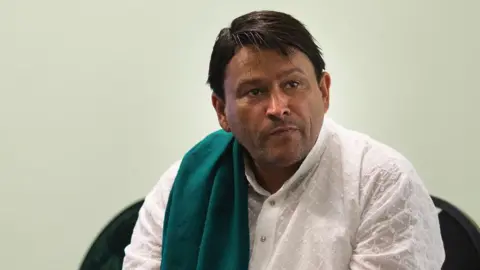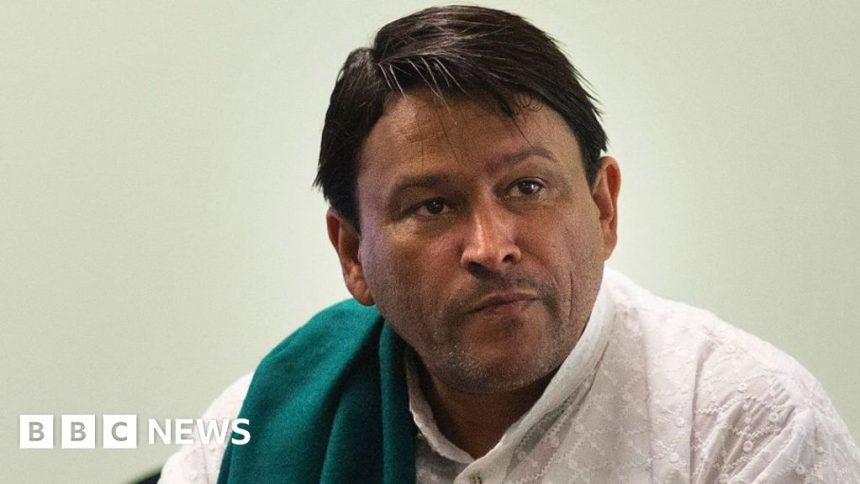South Africa police ‘hot on heels’ of suspects in gay imam killing
 AFP
AFPPolice in South Africa are “hot on the heels” of the suspects behind the killing of Muhsin Hendricks, dubbed the world’s first openly gay imam, Deputy Justice Minister Andries Nel has said.
The 57-year-old was in a car when he was shot dead in broad daylight in the coastal city of Gqeberha on Saturday.
CCTV footage of the incident shows a hooded figure running out of a pick-up truck that was blocking Hendricks’ vehicle and then firing shots through the window.
The imam was well known for his work in creating a safe haven for gay and other marginalised Muslims and his killing shocked the LGBTQ+ community and beyond.
An investigation is under way but Nel told the Newzroom Afrika TV channel that it was too early to say whether it was a hate crime.
Without giving further details, Nel said he was told by Deputy Police Minister Polly Boshielo that officers were tracking down the suspected killers.
- Born free, killed by hate – the price of being gay in South Africa
- The volunteers taking on South African crime
Paying tribute to Hendricks, Nel said that he “was a South African that we can all be proud of, a South African that we can all aspire to be”.
Hendricks’ work challenged traditional interpretations of Islam, which oppose same-sex relations.
While being clear that it did not agree with Hendricks, South Africa’s Muslim Judicial Council (MJC), one of the country’s main religious bodies, condemned the killing.
“As members of a democratic, pluralistic society, the MJC remains steadfast in advocating for peaceful coexistence and mutual respect, even amidst divergent views,” it said.
Another leading Muslim body – the United Ulama Council of South Africa -condemned “extrajudicial killings” and urged people not to jump to conclusions about the motive.
South Africa’s constitution, adopted after the end of white-minority rule in 1994, was the first in the world to protect people from discrimination because of their sexual orientation and in 2006, became the first country in Africa to legalise same-sex marriage.
But despite a thriving LGBTQ+ community, gay people still face discrimination and violence. The country also has one of the highest murder rates in the world.
Hendricks came out as gay in 1996, which shocked the wider Muslim community in his home city of Cape Town and elsewhere.
That same year, he founded The Inner Circle, an organisation providing support and a safe space for queer Muslims seeking to reconcile their faith and sexuality before going on to establish the inclusive Masjidul Ghurbaah mosque.
He was the subject of a documentary in 2022 called The Radical, in which he said about the threats he faced: “The need to be authentic was greater than the fear to die.”
Hendricks often spoke about the importance of interfaith dialogue and the need to address the mental health issues and trauma faced by LGBTQ+ individuals within religious communities.
He told the International Lesbian, Gay, Bisexual, Trans and Intersex Association World Conference in Cape Town last year: “It is important that we stop to look at religion as the enemy.”
Additional reporting by Todah Opeyemi.
You may also be interested in:
 Getty Images/BBC
Getty Images/BBCGo to BBCAfrica.com for more news from the African continent.
Follow us on Twitter @BBCAfrica, on Facebook at BBC Africa or on Instagram at bbcafrica







